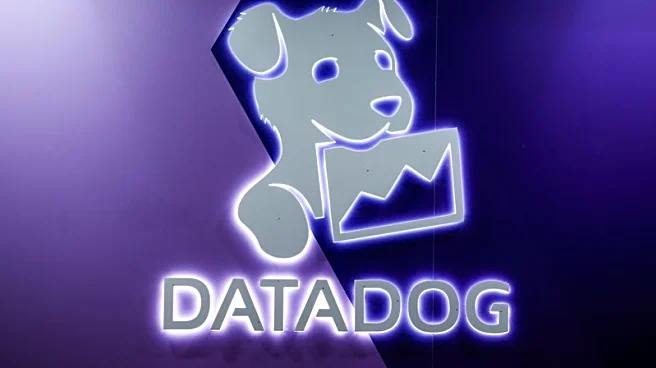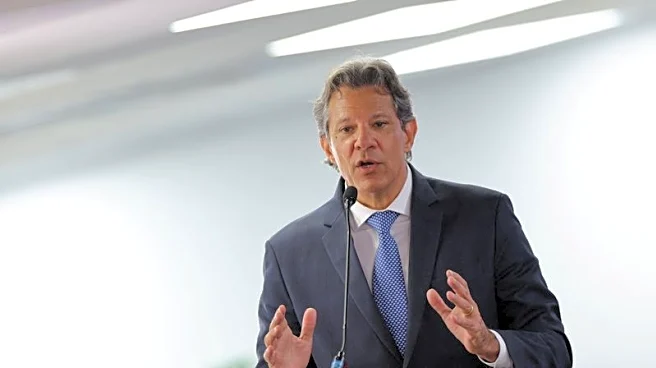What's Happening?
The New Scientist Book Club recently completed its reading of Alex Foster's science fiction novel 'Circular Motion'. The book presents a dystopian world where massive aircraft orbit the Earth, accelerating its rotation and shortening days to just two hours. This scenario leads to various catastrophic effects, both environmental and personal. The novel has sparked diverse reactions among book club members, with some praising its engaging narrative and others critiquing its heavy dystopian themes. The book draws parallels to current global issues such as climate change and societal inequality, reflecting the author's intent to mirror real-world challenges through fiction.
Why It's Important?
The significance of 'Circular Motion' lies in its exploration of themes that resonate with contemporary global issues. By depicting a world grappling with the consequences of technological advancements, the novel serves as a metaphor for climate change and societal hubris. It highlights the potential dangers of relying on technological fixes rather than addressing root causes. The book's reception among readers underscores the ongoing debate about the role of science fiction in reflecting and critiquing real-world problems. It also raises questions about the balance between character-driven narratives and scientific speculation in the genre.
What's Next?
Following the discussion of 'Circular Motion', the New Scientist Book Club plans to delve into Ursula K. Le Guin's classic sci-fi novel 'The Dispossessed'. This shift to a renowned work from 1974 aims to explore themes of anarchism and utopia, offering a different perspective on societal structures. The club's engagement with Le Guin's work is expected to foster discussions on political and social ideologies, further enriching the members' understanding of science fiction's role in examining human conditions.
Beyond the Headlines
The novel's depiction of a dystopian future raises ethical and philosophical questions about humanity's relationship with technology and nature. It challenges readers to consider the implications of unchecked technological progress and the moral responsibilities of those in power. The book's focus on societal inequality and mental health issues also prompts reflection on systemic problems and the need for holistic solutions. These deeper themes contribute to the ongoing discourse on the intersection of science fiction and social commentary.









